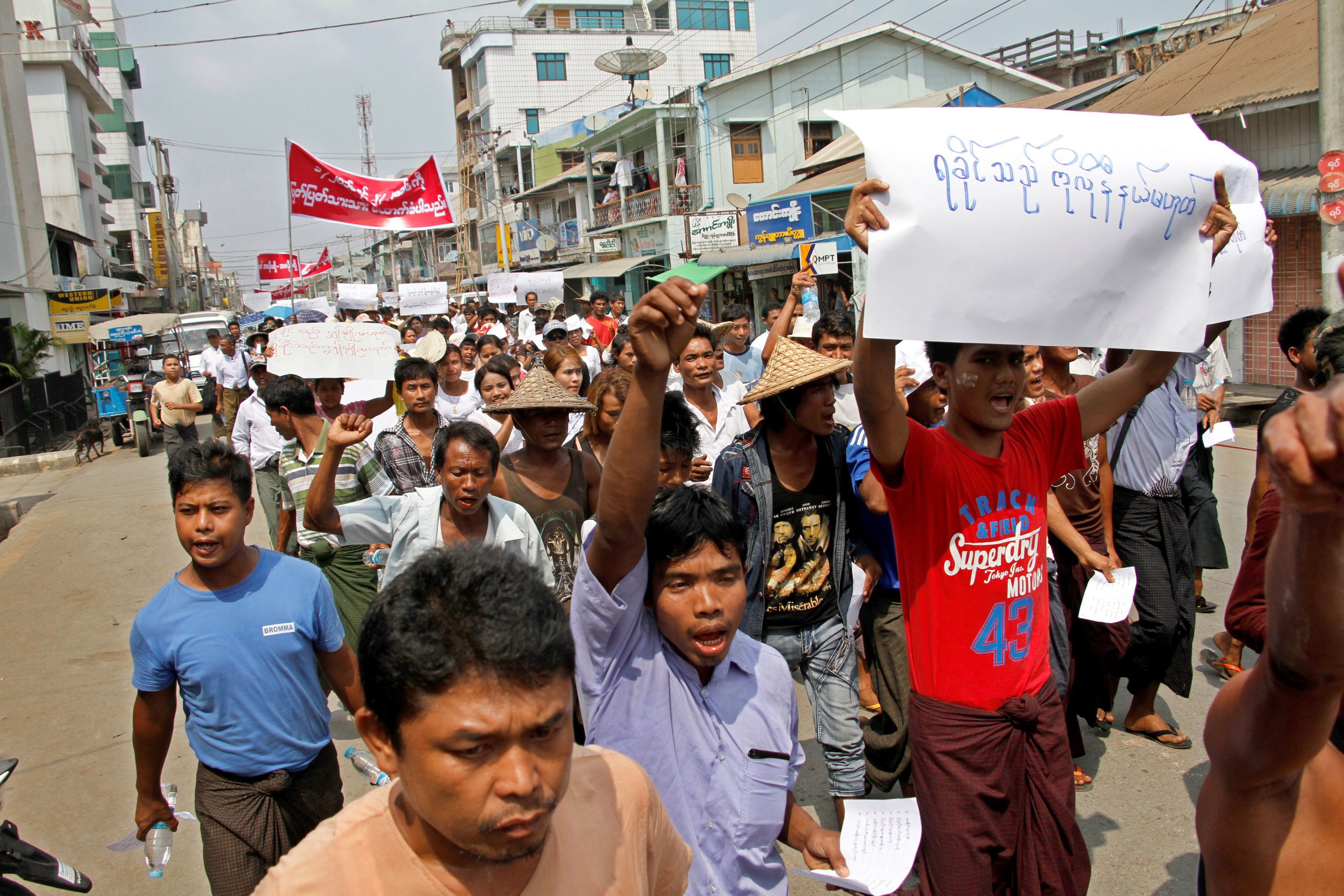![EPA MYANMAR RAKHINE PROTEST POL CITIZENS INITIATIVE & RECALL MYA [image : 82171638]](http://www.gannett-cdn.com/media/2016/03/23/USATODAY/USATODAY/635943415759421655-EPA-MYANMAR-RAKHINE-PROTEST.jpg)
When Myanmar’s new government takes office next month, its top priority should be releasing political prisoners and repealing laws that make them possible, Amnesty International said in a report released Thursday.
Despite recent elections and what looks like a new era of political openness in the once-repressive country, authorities increasingly cracked down on peaceful expression and political activism since 2014, according to the report.
Hundreds of protesters, activists and journalists have been arrested, charged, detained or imprisoned in politically motivated cases the past two years, the human rights group said.
“Myanmar’s legal framework reads like a textbook of repression, and authorities have in recent years increasingly used it to silence dissent,” said Champa Patel, Amnesty International’s South East Asia director. “To break the vicious cycle of political arrests, the new government must prioritize reforming the legal code to ensure that speaking out is no longer a crime."
Myanmar’s longtime opposition party, the National League for Democracy, led by Nobel laureate Aung San Suu Kyi, won control of parliament in November's elections. The new government ends more than 60 years of rule by the military and a quasi-civilian government that was headed by President Thein Sein.
![EPA FILE MYANMAR PARLIAMENT POL PARLIAMENT MYA [image : 82172006]](http://www.gannett-cdn.com/media/2016/03/23/USATODAY/USATODAY/635943416388105685-EPA-FILE-MYANMAR-PARLIAMENT.jpg)
The new parliament has picked Htin Kyaw, an ally Suu Kyi, as president who takes office April 1. Suu Kyi is blocked from becoming president.
The country's army will still play a key role in the incoming government by retaining control of three powerful ministries — defense, interior and border security.
Amnesty International's report, based on scores of interviews with human rights defenders, activists, lawyers and prisoners of conscience and their families, documents how authorities in Myanmar, previously known as Burma, used the legal system to repress political opponents the past two years.
The group said it knows of almost 100 prisoners of conscience still behind bars, plus hundreds of other peaceful activists being detained or waiting for their trials to end.
“The sheer number of prisoners of conscience in jail is an ongoing dark stain on Myanmar’s record, and belies the authorities’ claims to have turned a corner on human rights,” Patel said. “The ramping up of repression and arrests of people who have done nothing but peacefully express their views has been deeply disturbing.”
![Myanmar Overview [oembed : 82186844] [oembed : 82186844] [oembed : 82186844] [oembed : 82186844] [oembed : 82186844] [oembed : 82186844]](/Portals/_default/Skins/PrestoLegacy/CommonCss/images/smartembed.png)


![Myanmar Enters a New Political Era [video : 79620960]](http://www.gannett-cdn.com/-mm-/3fd4c571bf87f2434a2fbf04f06db8790ccfff33/c=69-0-955-757/local/-/media/2016/02/01/USATODAY/USATODAY/635898944882911381-AX012-6DC1-9.JPG)
